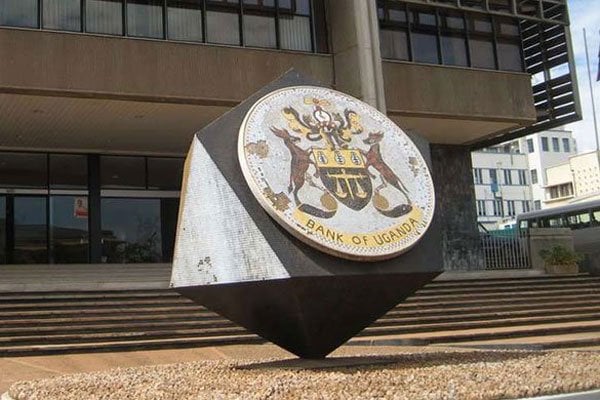Prime
What year-long spell without BoU governor says of Uganda

Bank of Uganda headquarters in Kampala, Uganda. PHOTO/FILE
What you need to know:
- No one expected the country to go without a BoU governor for 12 months and counting.
Uganda has for the first time in nearly six decades gone through 12 months without a substantive Central Bank governor.
The Bank of Uganda (BoU) Act mandates the country’s President to appoint a person with recognised financial or banking experience as the chief executive officer and the chairperson of the board of directors of the BoU.
When Emmanuel Tumusiime-Mutebile passed away on January 23 last year having spent 20 consecutive years at the helm of the Central Bank, he was always going to be a tough act to follow. Yet no-one expected the country to go without a BoU governor for 12 months and counting. Tumusiime-Mutebile was first appointed to the BoU governor position on January 1, 2001. He was re-appointed for five-year terms on three separate occasions in January of 2006, November of 2010, and December of 2015.
President Museveni, who was the chief guest at yesterday’s Prof Emmanuel Tumusiime-Mutebile Memorial Lecture, has kept his cards close to the chest as to when a new governor will be named.
Mr Michael Atingi-Ego, the deputy governor, continues to hold the fort. Ms Charity Mugumya, the bank’s director of communications, referred this publication to “the State House press secretary” when we inquired about the stasis around the BoU governor appointment. The State House press secretary was unavailable for a comment.
One of the top policy wonks in the Finance ministry, however, told us the absence of a substantive Central Bank governor hasn’t adversely impacted the Ugandan economy. Mr Patrick Ocailap, the deputy secretary to the Treasury, proceeded to note that “if it ain’t broke, don’t fix it.”
“What has gone wrong for us to be worried about?” he wondered, adding, “Imported inflation has been managed very well. We are also navigating the effects of Covid-19 pandemic without capsising the boat. All that is being done without a substantive governor. There is no reason to panic. Everybody should just relax. At an appropriate time the decision maker will make a decision.”
Mr Fred Muhumuza from Makerere University’s School of Economics pretty much reads from the same script. In an interview on Wednesday, he told Monitor that the role of the Central Bank is to maintain price stability and ensure financial sector stability. According to Mr Muhumuza, BoU has discharged both duties well enough despite the best efforts of imported inflation fashioned by the pandemic and Russia’s war in Ukraine to ensure otherwise.
“Be it professionally or technically, the Central Bank has delivered on its mandate without a person with a title of a substantive governor,” the economics lecturer said, adding, “That means the top office is functioning, only that this time the driver is the deputy governor who is actually part of the governor’s office. The only issue in my view is the argument: Can’t Uganda as a country really find a governor?”
Mr Stephen Kaboyo, the managing director of Alpha Capital Partners, in an interview said BoU is one of those special institutions with a governance structure capable of ensuring continuity. Mr Kaboyo told this publication that the role of BoU governor—as pivotal in guiding economic policy as it is—must be “seen in the context of the institutional framework of the central bank.”
“The governor, who is supported by the deputy governor, is accountable to the board of directors that is appointed by the President,” Mr Kaboyo, who is a former director of financial markets at the Central Bank, told Monitor. “Essentially, the executive office of the governor and the deputy run the day-to-day management of the bank.”
Mr Kaboyo proceeded to note: “Under them (governor and deputy governor) are the departments that handle all the technical work, undertake research and handle operations. All these contribute towards policy formulation and ensuring that the Central Bank fulfils its mandate.”
While it may sound unusual for a Central Bank to run for a year without a substantive governor, Mr Kaboyo says : “Looking at it from a purely technical standpoint there may be no major confidence challenge.”
He adds: “In my view, the appointing authority must be taking into account other considerations well knowing that there is absolutely no risk that undermines the role of the Central Bank in the interim.”
Critics, however, hold that the prolonged delay to name a new Central Bank governor is indicative of the state of affairs in Uganda where technocratic concerns perennially come up against demands of loyalty to President Museveni.





